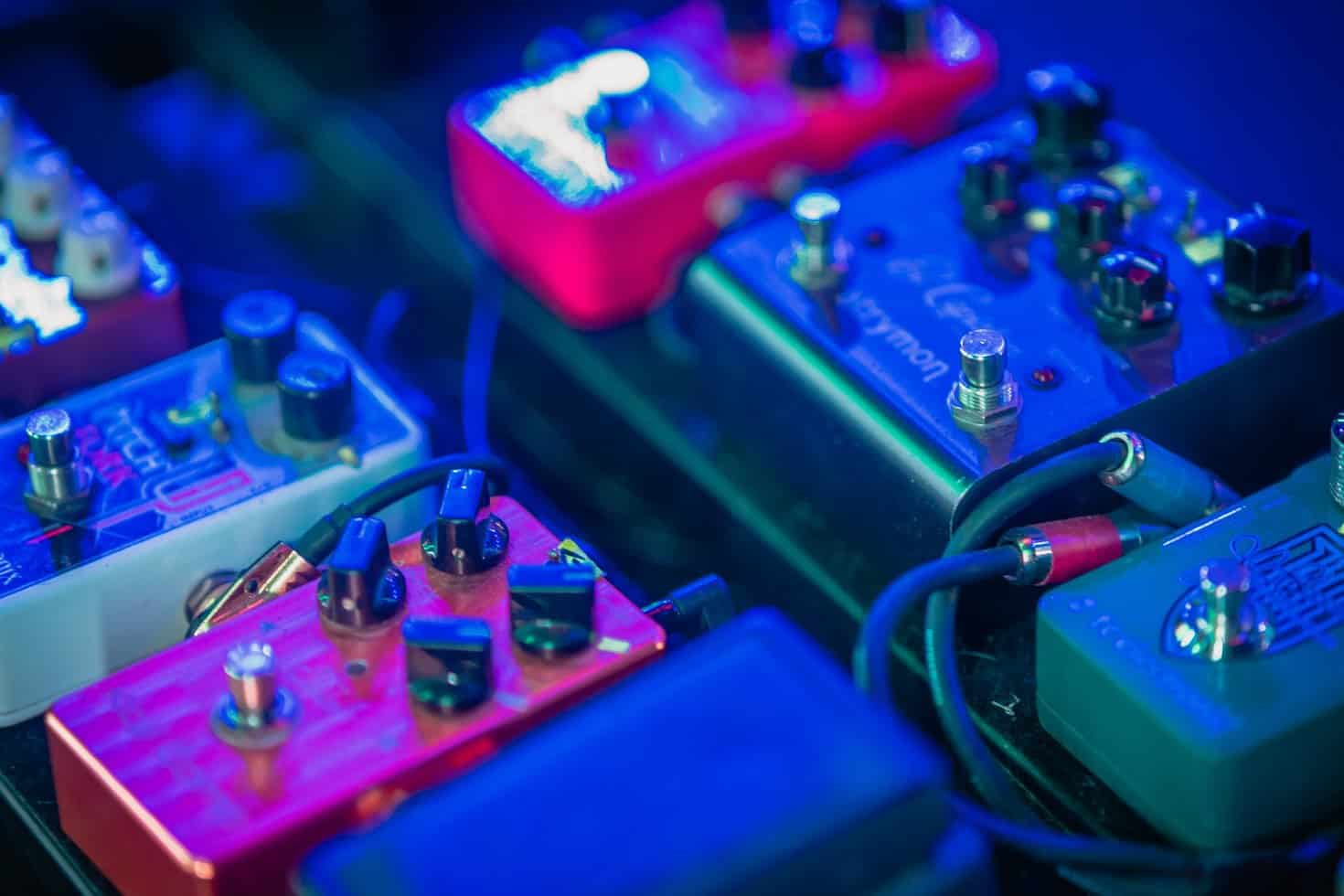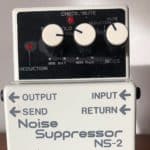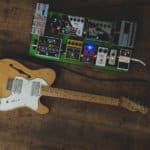There is a common issue one faces every time a guitar is connected: unwanted noise.
You know, that infernal hum that your amp produces and that invades the peaceful silence of the room.
For many, this is noise pollution, and something to get rid of.
Luckily, certain tools can prevent buzz from appearing: pedals.
More specifically, noise gates and noise suppressor pedals.
Both are helpful in such cases, but what’s the difference between the two of them?
Noise gate pedals cut off noise completely. If the signal is below a certain threshold, then it won’t pass. Noise suppressors, on the other hand, let some of the signal come out without being excessively loud. Usually, suppressors allow for a more specific definition of the frequencies affected.
For more details regarding these pedals, keep on reading the article!
What does a noise gate pedal do?
A noise gate pedal’s function is to cut off a signal that is below a certain threshold.
In other words, it eliminates all the unwanted noises that come from the amp whenever a guitar is connected.
By weakening signals that are below a certain level, hums disappear.
This tool is helpful for musicians who want to get a cleaner tone in their music.
What does a noise suppressor pedal do?
Noise suppressor pedals are quite similar to noise gates.
They also close to block the entire signal that wants to be reduced.
However, noise suppressors also allow for some signals to come out.
This means that this pedal has better control over sensitivity.
As a result, one has better control over the overall amount of noise suppression.
When to use a noise gate and when to use a noise suppressor?
Noise gate pedals are a good choice if one wants to completely cut off the sound.
While it might come back while playing, it disappears when not.
If you cannot stand hum in the moments where there should be silence, then a noise gate pedal is the one thing for you.
Noise suppressors, on the other hand, are for those who want to have the chance of configuring the sound.
Some people claim noise suppressors are great for getting rid of hiss without affecting the dynamic of the playing (as noise gate pedals do).
However, it is fair to mention that both pedals are quite similar
Which are more common: noise gates or noise suppressors?
The player’s preferences will vary regarding favoritism and personal needs.
Some indeed prefer having both, too.
However, it is safe to say that noise gates are, on the most part, more popular among musicians.
Can a noise gate or noise suppressor reduce string noise?
There is no way one can reduce string noise with a pedal.
Truth is, string noise has to do with playing, not with settings.
When players’ fingers move along the fret and strings, noise is bound to happen.
If anything, you can reduce compression or the high frequencies of your amp.
That way, you can reduce string noise.
Another alternative is to buy a string dampener, which is a piece of cloth that has to be wrapped around the first fret of your guitar.
To sum up, neither noise gate nor noise suppressors will work in this situation.
Can a noise gate or noise suppressor reduce 60 cycle hum?
Both pedals can reduce the 60 cycle hum.
Nevertheless, it can affect your tone too.
The dynamic range can be lost because these pedals are made to cut out the noise.
What is more, in the case of noise gate pedals, the 60 cycle hum will disappear but only momentarily.
The noise is cut off just when you are not playing with your instrument.
When you start striking notes again, the hum comes back.
Can a noise gate or noise suppressor reduce amp buzz?
The main purpose for someone to get a noise gate or noise suppressor pedal is to reduce amp buzz.
Feedback, hum, or buzz are all removed (or reduced) when playing with one of these pedals.
One difference between the two is that noise suppressors are more versatile.
As I mentioned before, one can configure the amount of noise that is expected to come out.
Noise gates, on the contrary, cut it off completely.
Still, both pedals’ function is to reduce amp buzz, and they succeed in their task.
Do noise suppressor pedals affect your tone?
Both tone and sustain are affected by such pedals.
The tone may slightly wear out and reduce the attack.
The dynamic of your picking will play an important role here.
If the picking is too light, then it might not get through the gate because the frequency would be too low.
While this is true, some musicians claim they never had issues regarding tone.
Alternatives to noise gates and noise suppressor pedals
You may not want to buy a noise gate pedal or a noise suppressor pedal.
That’s totally fine, and the good news is you can still find other alternatives to reduce buzz and hum without the use of any pedal.
One thing you can do is get an equalizer. It can alter the color of an audio signal and help you reduce feedback or other noise issues.
Other alternatives have to do with settings. For example, you can match the volume of your pedals (in case you have them), or reduce your gain while playing.
Experiment a bit, and find what settings suit you the best without producing excessive noise.
Finally, you can ground your gear.
To do that, you should connect the amp and every source you are using to a single power source.
A surge protector would do a great job in this situation.
Summary
All in all, we can say that both pedals are handy devices.
To reduce hum or buzz with merely a change in setting is no easy task.
Noise gates and noise suppressor pedals provide quick solutions to such problems.
If unwanted noises affected your live performance, a pedal will make those issues part of the past.
Before purchasing anything, you could make some research and hear for yourself to find which one of the two is the one for you.
Who knows? Maybe you realize you were needing both!

Hello there, my name is Ramiro and I’ve been playing guitar for almost 20 years. I’m obsessed with everything gear-related and I thought it might be worth sharing it. From guitars, pedals, amps, and synths to studio gear and production tips, I hope you find what I post here useful, and I’ll try my best to keep it entertaining also.





